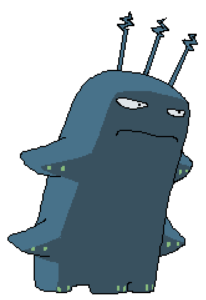 This first week was crazy and quite exciting. I have formally resumed my studies not only after a long period without such academic demands. This is all because of the daily use of spanish at home with my family and children, french in my daily work life (I live in the French-speaking side of Switzerland). I have to dust off this form of writing, since I normally use the more colloquial English for my interactions with my colleagues in other parts of Europe and the world.
This first week was crazy and quite exciting. I have formally resumed my studies not only after a long period without such academic demands. This is all because of the daily use of spanish at home with my family and children, french in my daily work life (I live in the French-speaking side of Switzerland). I have to dust off this form of writing, since I normally use the more colloquial English for my interactions with my colleagues in other parts of Europe and the world.
That being said, during the years my wife was studying psychology, I learned for my part that language training could be an excellent tool to prevent or at least ameliorate issues associated with certain cognitive diseases as we age. Fingers crossed that this is true!.
On the other hand, familiarizing myself with the online study platform has taken me longer than expected, even after a week of exploring it I find new links and sections. It is not my first experience of this kind and Canvas has pleasantly surprised me by its structure.
Week 1 Challenge Activity
Three projects have been assigned to me during this first week, the first one consisting of creating an avatar, a photo, containing objects that reflect the personal and professional experiences of each student as an introduction. This type of work, which requires a creative and playful approach, is identified under the heading of Challenge Activities, and is an excellent way to start each week, in my opinion.
Here is my take on this:

Time management and Agile development
The second assignment has a very different profile, and this part is based on the use of the time and project management system. Reviewing the most popular methods derived from the AGILE model.
As I read on, I wondered why this topic was addressed at the beginning of each sprint. Having applied the Scrum method on several occasions during the development of personal projects with a small working group, I wondered how to use this same approach within the learning framework, especially when dealing with a team of only one person.
I must say that I was pleasantly surprised by the proposal of this course, which presented a vision that I had not imagined until now!
A critical reflective journal
The last task for this week is to create a personal blog. Having had some experience with WordPress, it took me no more than an afternoon to reactivate an old personal domain and install a template that minimally met the requirements, without neglecting the installation of certain add-ons for content management (images, audios, but also security and maintenance to avoid problems in the long term).
Some useful free themes for blogs that I tried and test:
Hemingway by Anders Norén
Astra by Brainstorm Force
OceanWP by Oceanwp
Writee by Scissor Themes
Scratchpad by Automattic
Finally for practical reasons (versatility, simplicity) I decided to go with Scratchpad. After the basic installation of this template I download and activate a few extra -also free- plugins that I fully recommend:
Post types order by Nsp Code (allows to reorder the posts within admin interface)
Polylang by Sintex (to manage different language entries)
Very simple contact form by Guido (to easily create a customized contact forms)
Duplicator by Snap Creek (to move, migrate, clone or back up a WordPress site between domains or hosts in just minutes)
Planning the content structure was more laborious. I did not want to limit the blog to what was strictly requested by the course, as I am excited about writing about other areas of game development in which I have had experiences, good and bad.
Keeping the topics separated in a clear and evident way for the reader was by far the most complicated thing to do.
Personal and professional goals
Keep the journal up to date, add new material to old entries adding my own experiences on the video game developing field whenever possible.
List of images
Fig 1. Objects from my desk and workplace. January 2021. Photograph by Author.
References
Games for Health Europe. ‘The leading professional community and organization in the field of applied health games‘. [online]. Available at: <https://www.gamesforhealtheurope.org> [Accessed 2 February 2021].
Lorant-Royer, S. 2010. ‘Kawashima vs Super Mario ! Should a game be serious to stimulate cognitive aptitudes?’. Revue européene de psychologie appliquée, 60, 221-232.
Wattasnasootorn V, and Boada I. 2013. ‘Serious games for health’. Entertainment Computing, 4, 231-247.